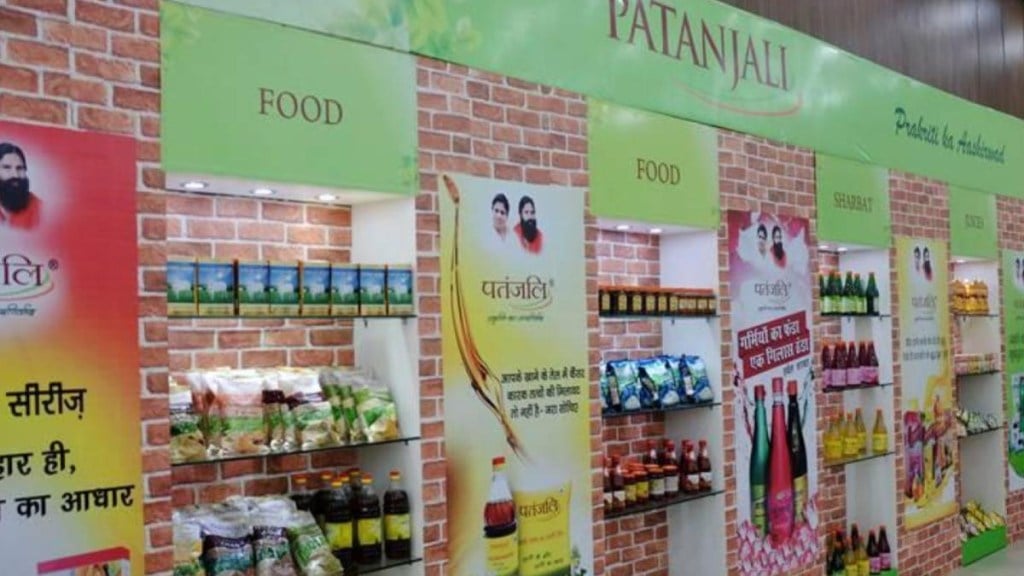Ayurvedic products company Patanjali, which had ceded ground in toothpastes to Dabur and Colgate over the last few years, is now looking to claw its way back, launching both an aggressive marketing and distribution campaign, industry sources have told FE
Advertisements claiming that Patanjali’s toothpaste ‘Dant Kanti’ is the true paste or ‘truthpaste’ are visible on national television these days, reminding consumers that regular toothpastes are full of chemicals, while Patanjali’s product has the goodness of natural ingredients. The marketing blitz is reminiscent of the effort the company, whose face is yoga guru Baba Ramdev, had put in around 5-6 years ago to disrupt the toothpaste market, led by Colgate.
This initiative comes even as on the ground, Patanjali is pushing its distribution reach from around 1 million outlets now to about 1.5 million outlets, and then to 2 million outlets in phases, according to persons in the know.
While Patanjali executives were not immediately available for comment, the strategy is timed with the rural revival that the domestic fast-moving consumer goods (FMCG) market is seeing, experts tracking the market said.
While Colgate’s CEO & MD Prabha Narasimhan last month said that the naturals toothpaste market in India was plateauing, Dabur India’s CEO Mohit Malhotra says that the naturals segment is still around 30% of the overall toothpaste market in the country. To put things in perspective, the overall toothpaste market in India is about Rs 10,000 crore in size.
“As far as naturals is concerned, it will continue to take business from the regular white toothpaste. And value-added natural toothpastes will continue to grow,” Malhotra said in a recent call with analysts. Dabur has a portfolio of ayurvedic and herbal toothpastes from Dabur Red Paste to Meswak, Babool and Dabur Herb’l, among others. Colgate has its Vedshakti and Herbal toothpaste variants within its naturals portfolio.
Once at 15% in terms of market share led by its sustained push of the naturals toothpaste category, Patanjali’s market share is estimated to be around 8-9% now, according to industry executives quoting Nielsen data. Colgate and Dabur are estimated to have market shares of around 50% and 17% each in the toothpaste market.
In a recent earnings call, Colgate’s Narasimhan said the company would focus on rural areas to drive up volume growth in toothpastes, given that the opportunity existed for market expansion in the hinterlands.
“Only 20% of urban households brush twice a day in India, while 45% rural households brush once a day, she said. “So, the opportunity for us would be to get people to brush more. We will also focus on tapping the 55% rural households who do not brush daily to drive volume growth,” Narasimhan said.
A recent report by market research agency Nielsen said that the FMCG market in calendar years 2023 would grow at around 7-9%, led by a revival in rural areas. Contributing factors would be a moderation in inflation, which will spur volume growth rather than price-led growth, which was the trend in 2022.
For Patanjali, say experts, this is good news since it has a strong base of consumers in smaller towns and cities.
“Patanjali has good traction in smaller towns, which it is looking to leverage as the rural areas begin to come out of a prolonged slowdown,” says Kaustubh Pawaskar, deputy vice-president, fundamental research at Mumbai-based brokerage Sharekhan.
Patanjali’s share loss, Pawaskar said, coincided with the Covid-19 pandemic and a subsequent rural meltdown as inflationary pressures grew over the last year-and-a-half.
